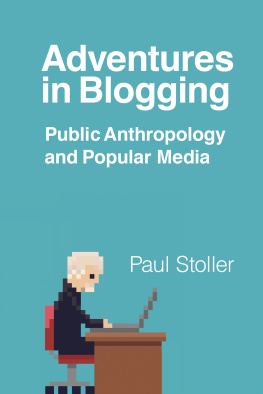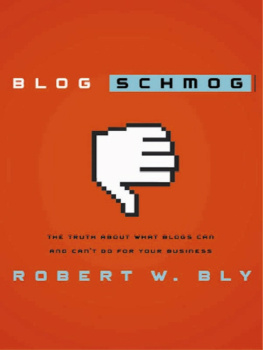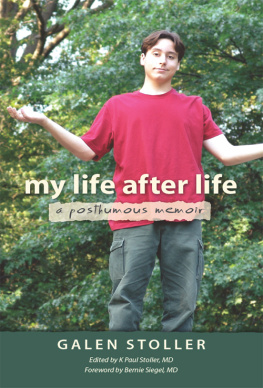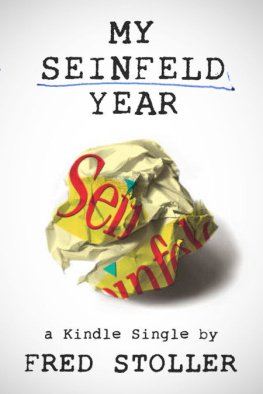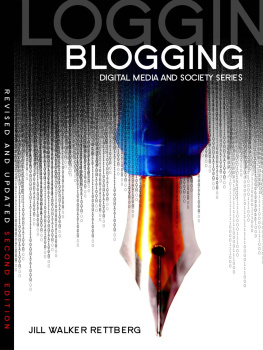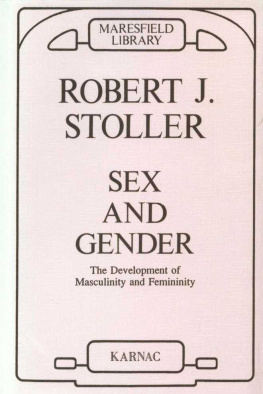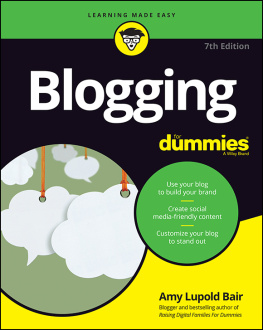Adventures in Blogging
Public Anthropology and Popular Media
Paul Stoller

Toronto Buffalo London
Copyright University of Toronto Press 2018
utorontopress.com
All rights reserved. The use of any part of this publication reproduced, transmitted in any form or by any means, electronic, mechanical, photocopying, recording, or otherwise, or stored in a retrieval system, without prior written consent of the publisheror in the case of photocopying, a licence from Access Copyright (the Canadian Copyright Licensing Agency) 32056 Wellesley Street West, Toronto, Ontario, m5s 2s3is an infringement of the copyright law.
Library and Archives Canada Cataloguing in Publication
Stoller, Paul [Essays. Selections]
Adventures in blogging : public anthropology and popular media /
Paul Stoller.
Includes bibliographical references and index.
Issued in print and electronic formats.
isbn 978-1-4875-9492-3 (softcover).isbn 978-1-4875-9493-0 (hardcover). isbn 978-1-4875-9494-7 (epub).isbn 978-1-4875-9495-4 (pdf)
1. Stoller, PaulBlogs. 2. BlogsSocial aspects. 3. BlogsPolitical aspects. 4. Online authorship. 5. AnthropologyBlogs. 6. Political scienceBlogs. 7. Political sociologyBlogs. 8. SociologyBlogs. I. Title.
HM851.S763 2018302.23'14C2017-905704-9
C2017-905705-7
We welcome comments and suggestions regarding any aspect of our publicationsplease feel free to contact us at .
North America
5201 Dufferin Street
North York, Ontario, Canada, M3H 5T8
2250 Military Road
Tonawanda, New York, USA, 14150
ORDERS PHONE : 18005659523
ORDERS FAX : 18002219985
ORDERS E-MAIL :
UK, Ireland, and continental Europe
NBN International
Estover Road, Plymouth, pl6 7py, uk
ORDERS PHONE : 44 (0) 1752 202301
ORDERS FAX : 44 (0) 1752 202333
ORDERS E-MAIL :
Every effort has been made to contact copyright holders; in the event of an error or omission, please notify the publisher.
This book is printed on paper containing 100% post-consumer fibre.
The University of Toronto Press acknowledges the financial support for its publishing activities of the Government of Canada through the Canada Book Fund.
Printed in the United States of America.

Also by Paul Stoller
In Sorcerys Shadow (with Cheryl Olkes)
Fusion of the Worlds
The Taste of Ethnographic Things
The Cinematic Griot: The Ethnography of Jean Rouch
Embodying Colonial Memories
Sensuous Scholarship
Jaguar: A Story of Africans in America (a novel)
Money Has No Smell
Stranger in the Village of the Sick
Gallery Bundu (a novel)
The Power of the Between
Yayas Story
Climbing the Mountain (with Mitchell Stoller)
The Sorcerers Burden (a novel)
Prologue: Blogging Bliss and Public Anthropology
From its beginnings, anthropology has had a significant public dimension. Franz Boas, the pioneer of American anthropology, was a very public figure, who in the early part of the 20th century protested against American racism and the interconnected toxins of eugenics and Social Darwinism. Almost 100 years later, these poisons have re-emerged strongly in the American and European public spheres. In a social and political context that celebrates ignorance and distrusts expertise, many people openly profess their belief that racial and ethnic minorities are inferior and that science is evil. A small group of these people has begun to engage in acts that are seemingly propelled by these beliefsa spate of police killings of unarmed African American males, white nationalists attacking journalists, firebombing mosques, and killing innocent American citizens who happened to be African Americans (the Charleston church slaughter) or Muslims (a young teenage girl killed in Seattle). The re-emergence of these socially venomous conditions contributed to the perfect storm that led, in part, to the election of Donald J. Trump, a man who uses what Joseph Goebbels called the big lie to create a socially destructive alternative reality.
There is a strong wind blowing in Europe and the United States, a wind that carries the dust of the big lie. Heres the rub: no scholarincluding, of course, anthropologistscan combat big lies with small truths. Its fine to practice anthropology as usual in order to better understand the emergence of global populism and its relation to globalization, international trade, worker migration, and technological change. In these troubled times, though, anthropologists can also use the eye-opening insights of ethnography to resist socially toxic big lies. Through blogs, editorials, accessible ethnographic texts, public appearances, performance, film, and art installations we can spread the anthropological word day after day, week after week, and year after yeara necessary and sufficient way for us to combat the celebration of ignorance and contribute to a more promising future. As scholars, is this not our central obligation?
An increasing number of anthropologists have taken up the challenge of public anthropology. There are any number of anthropological blogs, individual webpages, and social media platforms from which anthropologists, among other scholars, are attempting to critique climate change denial, racism, homophobia, gender discrimination, ethnic bias, income inequalities, health care inequities, and the culture of ignorance as well as the alternate reality of Trumpism. In her May 1, 2017 Anthropology News column, Alisse Waterston, then president of the American Anthropological Association, encouraged anthropology departments to consider more fully the academic value of public scholarship. She wrote:
public anthropology includes such works as Roxanne Varzis ethnographic novel Last Scene Underground; the spoken word, performance art, installation pieces, poetry and prose of Gina Athena Ulysse; Jason De Lens powerful museum exhibit State of Exception/Estado de Excepcin; Hugh Gustersons columns in Bulletin of the Atomic Scientists; and an ever-growing number of anthropology blogs from Allegra Lab and Anthropology News to SAPIENS and Savage Minds. Theres much more public scholarship I could namebut you get the idea.
All writers want a large and diverse audience to read their works. If only a few people are going to read what you produce, why toil and suffer all those long and lonely hours of screen staring, keyboard tapping, editing, re-editing, and sifting through readers critical commentaries that require more screen staring, keyboard tapping, editing and re-editing? Is it enough, as I once thought, just to see your byline on a journal article or on a books title page? In these techno- sophisticated times, how many colleagues, students, orbetter yetlay readers have the time or will to read seriously detailed, jargoned, and theorized anthropological writing about obscure groups of people living in remote parts of the world?
Having been in the anthropological game for a very long time, I find contemporary reading trends, which trouble me, poignantly evident. For most of my time in anthropology, Ive been a book person. Sure, I wrote journal articles in the early years of my anthropological odyssey. I dont know if those deadly competent articles are better or worse than those of my contemporaries, but I do know that very few people have read them. When you ask someone about a journal articleeven your journal articlesee if the response is not something like Oh, yes, I saw it, or Right I noticed it.

